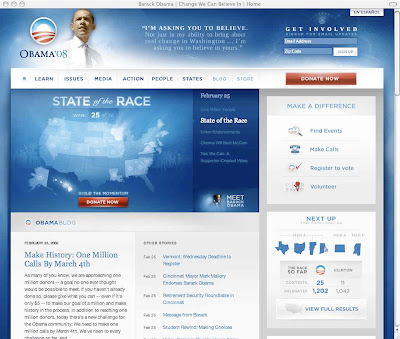The Cancer Question
The role of celebrities in this year's presidential election is interesting to watch, with famous endorsements coming in from all sides. Although it is admirable for stars to leverage their celebrity in support of a particular candidate, I'm more impressed by one who uses his to support a cause.
As I've noted before in this blog, I'm a fan of Lance Armstrong for the way he's used his celebrity to fight for the cause that is near and dear to him: Cancer. Last night, Armstrong appeared on Larry King Live to push for cancer to be a national priority after an unprecedented drop in federal funding for the National Cancer Institute. During his interview, Lance was asked the question "which candidate would do the most in the fight against cancer?" In other words, who would Lance be endorsing as the cancer candidate? Lance has always contended that cancer is not a partisan issue and he's admirably remained non-partisan in his advocacy. He answered the question by saying that, obviously, every candidate opposes cancer. It is up to us to challenge them on this complex issue by comparing specific policies, such as whether they would support a national smoking ban, following the lead of 23 states that have adopted statewide bans to prevent the single most preventable form of cancer death in America. Where do they stand on early detection programs? Federal funding for drug discovery? Access to clinical trials? Treatment for the uninsured? The list goes on and on.
Lance has always contended that cancer is not a partisan issue and he's admirably remained non-partisan in his advocacy. He answered the question by saying that, obviously, every candidate opposes cancer. It is up to us to challenge them on this complex issue by comparing specific policies, such as whether they would support a national smoking ban, following the lead of 23 states that have adopted statewide bans to prevent the single most preventable form of cancer death in America. Where do they stand on early detection programs? Federal funding for drug discovery? Access to clinical trials? Treatment for the uninsured? The list goes on and on.
While other celebrities will support the candidate they believe can change the world, Lance is asking them to support his cause and his fight. To me, this is a tremendous example of leadership on both a public and a personal level, and it is why I admire the man even more than the cyclist. Last August, the Lance Armstrong Foundation hosted the first ever LIVESTRONG Presidential Cancer Forum, demanding that each candidate answer what Lance refers to as the "cancer question." I hope you'll watch the video below.












